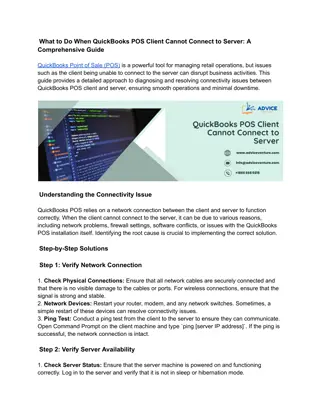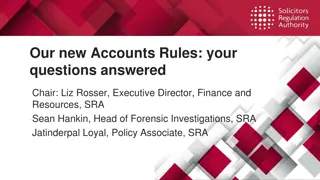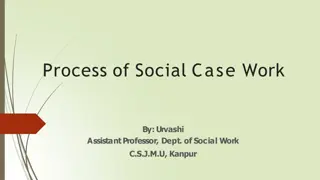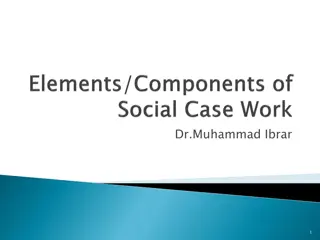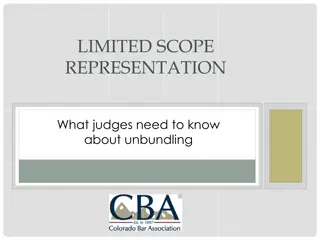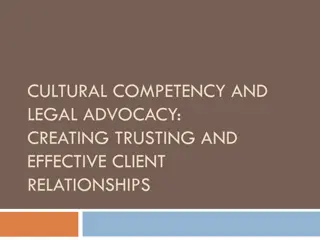Building Strong Client Relationships in Legal Practice
Establishing clear expectations, effective communication, transparent billing, and proactive engagement are key components in developing strong client relationships in the legal field. By focusing on these aspects, attorneys can foster trust, loyalty, and satisfaction among their clients, leading to successful outcomes and long-term partnerships.
Download Presentation

Please find below an Image/Link to download the presentation.
The content on the website is provided AS IS for your information and personal use only. It may not be sold, licensed, or shared on other websites without obtaining consent from the author.If you encounter any issues during the download, it is possible that the publisher has removed the file from their server.
You are allowed to download the files provided on this website for personal or commercial use, subject to the condition that they are used lawfully. All files are the property of their respective owners.
The content on the website is provided AS IS for your information and personal use only. It may not be sold, licensed, or shared on other websites without obtaining consent from the author.
E N D
Presentation Transcript
Creating Better Relationships with Clients By: Rudy Rivera, Esq. May 4, 2020
About the Speakers About the Speakers Rodolfo (Rudy) Rivera Fidelity National Financial Jacksonville, Florida Rudy.Rivera@fnf.com 904.854.8849 Darryl Horowitt Coleman & Horowitt, LLP Fresno, California dhorowitt@ch-law.com 559.248.4820
SETTING EXPECTATIONS AT THE BEGINNING When You Are Retained: Remember: Not every case should be tried; and Not every case should be settled Have a conversation as to expectations Learn about the Company Ask how (if at all) the case could impact the Company Obtain a point of contact for obtaining documents Set parameters for communication Let the client know which lawyers will be working the matter.
Communication Method of Communications: Letters Memorandums Emails Teleconference Videoconferencing Face-to-Face: Visit with your client once per year If working on active matters, bring those attorneys to the meeting Don t spend time telling them how great you are.
Communication Remember to: Provide updates to memorandums Provide copies of pleading well in advance and not the day before Depending on the sophistication of the client, provide executive summary with lengthy pleadings Respond in a timely manner; 24 to 48 hours Keep your communications accurate, concise and on point If a client fails to follow the advice you provide, inquire as to why. Was it a business decision? Try not to be condescending with speaking with non-attorneys.
Billing When billing a client: Review the bill before sending to the client Be transparent Advise when bills will be high Be aware of partners charges for research Never say: I did not bill for all of my time. Have conversations with your client about the bills Address any rejections Deleting unnecessary time charges shows the client that it is not just about the money. Do not have multiple lawyers billing on a matter unless they add some type of expertise. Communicate to client prior to sending large bills; provide advance notice of increased billing time Ask for increase in budget before the budget is met SEND BILLS MONTHLY
Lets go to Trial Lawyers don't believe it Follow up email and give an estimate of the cost Know the appropriate time to tell your client when to settle. Do not tell client what he wants to hear. Give honest assessment.
Firing a Client Do an analysis every year to determine if the relationship should be continued. Don t ever get too comfortable with a relationship. Reach out to them by phone and say how are you?
QUESTIONS? QUESTIONS?



